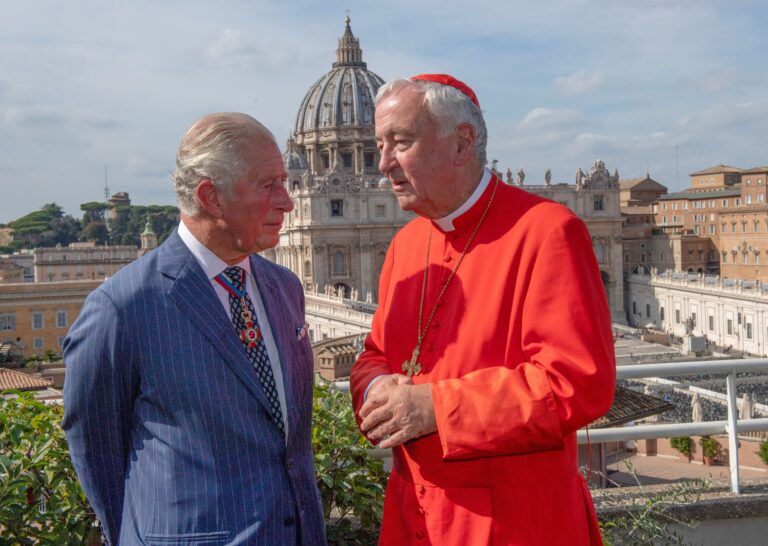It’s an ill omen of what will follow when you click on the link to the Synod plenary resolution section of the Bishops’ Conference of England and Wales and it says that it can’t open the page because the page’s address isn’t valid.
Valid is a technical, legal word but it’s also a Churchy word, the validity of orders, or the Mass was valid but illicit. It also refers to something that is sound, justifiable or well-founded and using that criteria many commentators and laity have found the plenary resolution of the bishops of England and Wales to be invalid; it being neither sound, justifiable or well-founded.
Nutshell
In a nutshell, the bishops ask ‘how’ six times and two of those six questions they pose are on Eucharistic Adoration. They pull one phrase out of a papal homily at the end of the Synod in Rome after a month of deliberations, a synthesis report, several papal homilies and use that to shape their pitiful response to the Synod.
That, after a listening process throughout England and Wales that gathered thirty thousand people who turned up on cold winter nights to huddle in groups to respond to the Pope’s call to tell his Synod what was on their minds. And did they tell what was on their minds!
I remember reading the Irish synthesis report and thinking that’s radical, but the Catholics of England and Wales were even more radical in their language. But let them speak here for themselves to remind you, using the words of the National Synthesis report;
“To many of those taking part the synod was a revelation”. “People remarked on the novelty of speaking, of being heard, how after decades of church-going, they had been asked to speak for the first time.” “The resistance of a portion of the clergy to the synod process is remarked on in many report.” “There is a real sense that the Church requires healing and conversion”. “A desire for churches to be places of closeness… welcome…inclusiveness”.
“There is a great love of parish priests”. “There is criticism of routine celebration, mediocre liturgy and homilies that do not speak to the real world”. “Lay faithful feel disempowered – parish and deanery councils have little or no impact…and yet the reports call for more of them with more impact.”
“The [child] abuse crisis is seen as a dramatic indictment of clericalism, of an institution seen as self-serving rather than serving, concerned with itself and its own reputation.” “There is a clear vision how the future can be different when all the People of God act together”.
“Consultation is virtually non-existent… the laity are simply not informed of what is happening and why.” “The place of women in the Church was the cause of “passionate, repeated and strongly expressed concern” in the Synodal listening.
Conclusion
In conclusion the Synodal listening report said, “The synod has opened a new horizon for the Church in England and Wales, awakening in the faithful a desire for discipleship and the call for a new way of living and thinking that deepens communion, enables participation, and equips all for mission. It is an invitation that must be acted on, lest the hope the Spirit kindled in the hearts of the faithful grow faint”.
Eighteen months later, after Continental meetings of the world Church, the Synod Assembly comprising representatives from around the world, a synthesis report, numerous talks and interventions by theologians, canon lawyers, books published and Pope Francis practically hoarse from saying Synodality is the way God wants his Church to follow in this change of epoch, the Bishops of England and Wales issue six questions as if this was the start of the listening process and two of those ‘How’ questions are how can we promote more prayer and adoration, adoration being a form of prayer where you sit on your own and be silent. Jesus wept.
Based on what their own Catholic populace said in that Synod listening report, the bishops’ response can only be seen as ‘invalid’: it’s neither sound, justifiable or well-founded based on that report and everything that has happened since.
Choices
And so there are two choices left to the laity. One is to allow ‘the Spirit kindled in their hearts…grow faint’ or alternatively they can become activists and say, ‘No your Grace, in an age of co-responsibility this is a failure of your leadership, it is not acceptable and it needs to change or we will change this Church without you’.
The Synod office and the Pope have clearly said that the changes highlighted at local level can happen now, lay Catholics don’t have to wait on Rome or a Synod Assembly to implement them. Rome has also, mistakenly in this author’s view, thrown the synod findings back to the Episcopal Conferences in a far too general way.
Guidelines are needed and calls to accountability and action. Otherwise other Episcopal Conferences will be emboldened to ignore their laity and return to a ‘pray, pay and obey’ mode of governance leading inevitably to a final mass exodus from what remains of a faithful congregation clinging on by their fingernails in a Church that talks a good talk about listening, but isn’t willing to accompany the laity on that walk.



